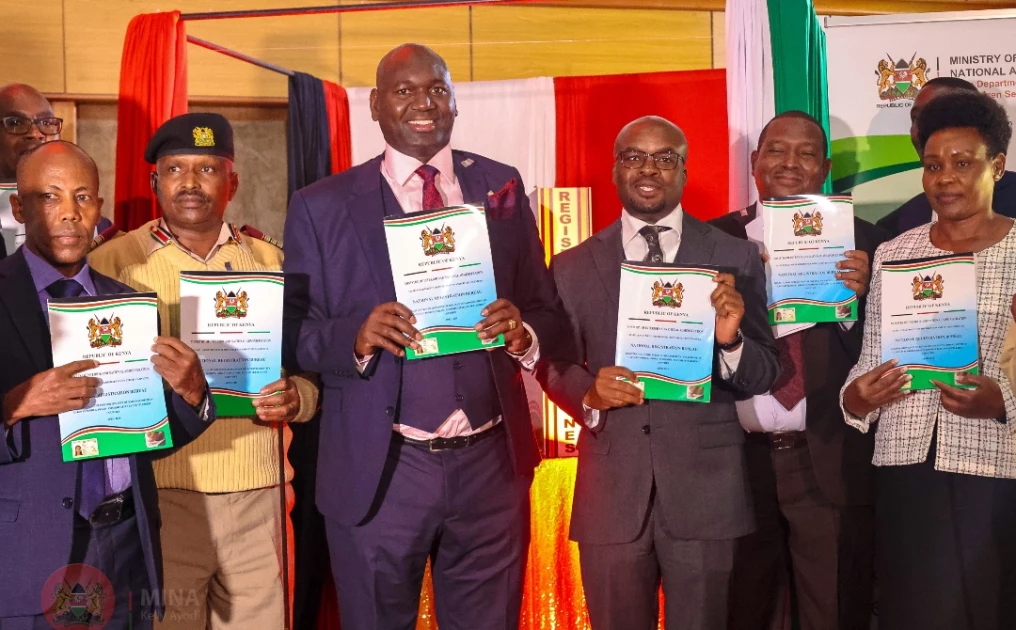Gov't dissolves vetting committees, Chiefs to be held accountable for ID issuance

PSs Julius Bitok (Immigration and Citizen Services) and Raymond Omollo (Interior and National Administration) and other government officials display copies of the new guidelines on the issuance of IDs at the Kenya School of Government, Kabete.

Audio By Vocalize
This decision, announced by Immigration and Citizen Services PS Julius Bitok and his Interior and National Administration counterpart Raymond Omollo, aims to ensure that only eligible applicants receive ID cards.
The move comes in response to a Presidential directive to dismantle the existing multi-agency vetting teams, which have been criticized for corruption and prolonged delays in issuing ID cards to communities residing along national borders.
PS Bitok emphasized that chiefs will now be required to personally endorse each approved application with their thumbprints and signatures. Applicants, predominantly youth reaching 18 years of age and above, must be presented by a parent or blood relative.
"We will hold chiefs to a personal account for any Kenyan ID issued to a foreigner because they will have endorsed the application. They will have to take responsibility for their actions,” Bitok said.
Dr. Omollo added that chiefs will collaborate closely with security agencies to ensure fair ID issuance while safeguarding national security interests and the integrity of the registration process.
Speaking at the Kenya School of Government, Kabete, during an induction workshop on 'Registration Guidelines for Border and Cosmopolitan Counties' for regional and county commissioners and county National ID registrars, the PSs highlighted the dissolution of vetting committees across 20 counties.
Under the new guidelines, applicants must validate their claim to Kenyan citizenship through their parents or a guardian who must be a close blood relative.
There have been complaints regarding vetting teams acting as extortion rings, demanding bribes from applicants and selling Kenyan registration documents to foreigners.
PS Bitok stated that dissolving vetting committees aligns with constitutional provisions and international conventions, ensuring registration documents are provided to all deserving citizens without discrimination or undue obstacles.
The introduction of the digital ID last year under the Maisha ecosystem, featuring a Unique Personal Identifier (UPI) and an integrated national population database, aims to simplify the identification of genuine applicants for registration documents like birth certificates and passports.
"The Maisha ecosystem assigns a unique number at birth linked to a family tree, eliminating the need for further verification by the time one applies for an ID at 18," Bitok explained.
PS Omollo instructed regional and county commissioners to ensure chiefs are briefed on the new regulations before they become operational on Wednesday.


Leave a Comment